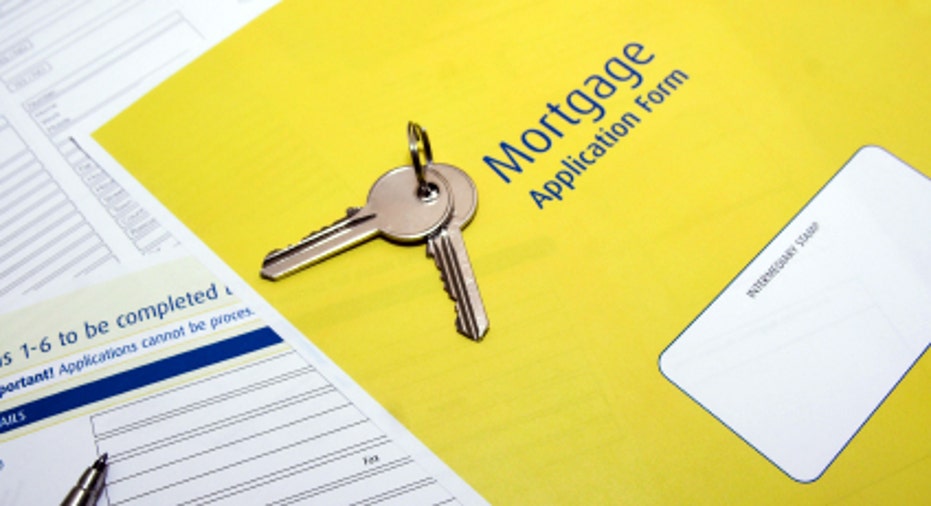Five Frequently Asked Questions on Mortgage Rates

Mortgage borrowers ask lenders a lot of questions, and the first usually is: What's your rate?
Whether they plan to purchase a home or refinance an existing mortgage, borrowers' chief concern is how they can get the lowest rate and save the most money.
By raising the rate question early, borrowers are also asking, though perhaps indirectly, whether a new loan is a good option for them, suggests Peter Thompson, a senior loan officer at Prospect Mortgage in Naperville, Ill.
"People want to make sure they're getting as good a deal as possible," Thompson says. "Even if they don't shop the rate, (they want to know) they're not getting taken advantage of, that they're getting the best deal. But they're also saying, 'What can you do? Is this something that's going to be possible?'"
Below are five of the most frequently asked questions about mortgages and mortgage rates that borrowers have for lenders.
What's Your Rate?
The question, "What's your rate?" is only natural, yet there is no one rate for all borrowers.
Rather, Thompson explains, lenders offer a range of rates, depending on myriad factors that include the property type, loan term, borrower's credit score, rate-lock duration, and whether the borrower will pay points or receive a rebate credited against the closing costs. (A point is an upfront fee equal to 1% of the loan amount.)
That variability means the lender needs more information from the borrower to quote a rate accurately, adds Greg Cook, a loan consultant at Golden Empire Mortgage Inc. in Temecula, Calif.
"Is this a purchase or refinance? A 30-year loan or 15-year loan? How much of a down payment are you going to make? Those are questions that we, as lenders, are trained to ask, but sometimes we don't get that chance," he says.
Can You Give a Lower Rate Than the Other Guy?
Many borrowers pose the rate question repeatedly, calling multiple lenders because they think that's a good way to shop for a mortgage. It isn't.
"They want to hear someone tell them a number that was lower than the last person. That's what they're looking for," Cook says.
Unfortunately, this quest for the one true lowest rate is mythical. All rates fluctuate from week to week, day to day or sometimes hour to hour.
Personalization and market risk make rate shopping difficult for borrowers, though many experts advise borrowers to shop for a loan, and the federal government requires lenders to use disclosure forms that encourage comparisons.
Jim Pomposelli, a mortgage banker at The Federal Savings Bank in Chicago, suggests that consumers should shop around -- up to a point.
"Don't run a Dutch auction where you are going back to everybody three times because at some point, you'll get what you pay for," he says.
Can I Get the Lowest Rate Among my Friends?
Another reason why some borrowers push so hard for the ultimate lowest rate is bragging rights. Cocktail-party talk and water-cooler chitchat are so important to them that reason flies out the window or at least takes a back seat to emotion.
"There is money to be saved, but when people really, really, really want to get that last bit off the table, I don't think it's fundamental economics," Pomposelli says. "It makes you feel good. It makes you feel smart. People want to feel they are smarter than the market."
May I Float Down the Rate?
Some lenders offer borrowers an option to "float down" a rate as an inducement to lock it -- in other words, to have a second chance to lock the rate if rates fall. Pomposelli says such programs are "quite expensive" for lenders, who have to make up the difference in another way.
"Banks aren't stupid," he says. "If you lock in at one rate and then you want to go lower, there is a charge in there somewhere."
Alternatively, borrowers can allow the rate to float to try to capture a downward tick, though that can be risky since rates can rise as well as drop, Pomposelli warns.
"You're thinking you might be able to save $20 (a month), but what if all of a sudden, you're paying $40 more?" he asks.
Can You Tell Me More About the Loan Terms?
Once the rate question has been raised and addressed, borrowers typically want more details about loan terms. Thompson says some frequently asked questions include: When can we close? Can you do this loan as a no-cost refinance? Is this a 30-year fixed-rate loan? Is there a prepayment penalty?
"A lot of the conversation is about making sure they know that it's the deal that it really is," he says.
Copyright 2012, Bankrate Inc.



















